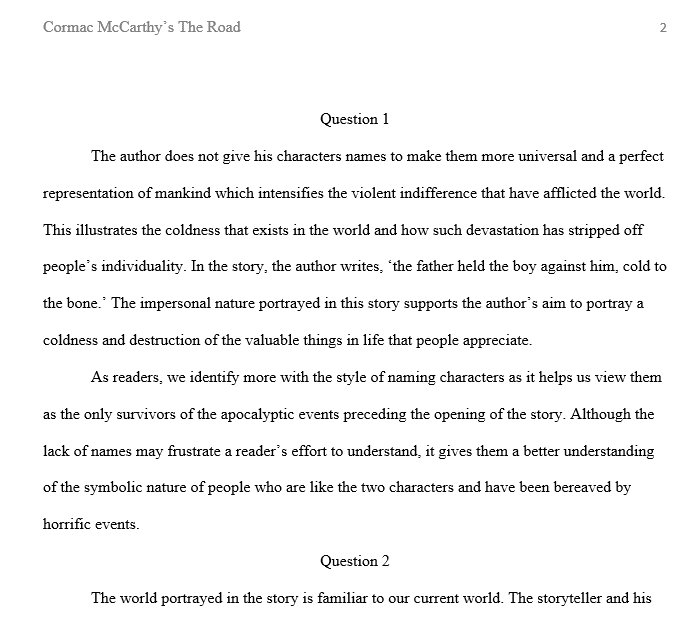Why do you think Cormac has chosen not to give his characters names? How do the generic labels of the man and the boy affect the way in which readers relate to them?
Why do you think Cormac has chosen not to give his characters names? How do
the generic labels of "the man" and "the boy" affect the way in which readers relate
to them?
2. How is Cormac able to make the post-apocalyptic world of The Road seem so real
and utterly terrifying? Which descriptive passages are especially vivid and visceral
in their depiction of this blasted landscape? What do you find to be the most
horrifying features of this world and the survivors who inhabit it?
3. As the father is dying, he tells his son he must go on in order to "carry the fire."
When the boy asks if the fire is real, the father says, "It's inside you. It was always
there. I can see it" [p. 279]. What is this fire? Why is it so crucial that they not let it
die?
4. What makes the relationship between the boy and his father so powerful and
poignant? What do they feel for each other? How do they maintain their affection
for and faith in each other in such brutal conditions?
Solution preview for the order on Why do you think Cormac has chosen not to give his characters names? How do the generic labels of the man and the boy affect the way in which readers relate to them?
APA
704 words
